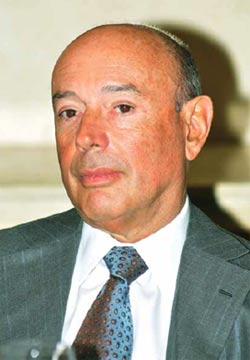Imbalance of competition due to tax factors
Author: Sandra Balbi
Source: ETCO Magazine, No. 15, April 2010
By Sandra Balbi
The discussion is launched. The need to regulate Article 146-A of the Federal Constitution is becoming more and more urgent as important sectors of the economy have been suffering competitive imbalances due to tax factors. “Cigarettes, beverages, fuels, manufacturers of CDs and DVDs face competition through tax instruments. Those who do not pay have a competitive advantage over their competitors, ”observes Hamilton Dias de Souza, a lawyer specializing in Tax Law and an ETCO advisor. Article 146-A aims to combat competitive imbalances caused by avoidance, tax evasion or tax evasion. “Taxes create asymmetry in competition and the constitutional norm is a general guideline of values, it does not constitute rules, which must be conveyed by laws”, observes Dias de Souza. The article has the following wording: “Complementary Law may establish special taxation criteria, with the objective of preventing competition imbalances, without prejudice to the Union's competence, by law, to establish norms with the same objective”.
Dias de Souza defends the need for complementary (federal) and ordinary (municipal) laws to regulate the article. But as there are many conflicting interpretations about 146-A, which can lead to “erratic bills”, according to him, it is essential to open the discussion widely.
In this sense, ETCO will hold on May 10 a national seminar in Brasília, which will be opened by Minister of Justice Luiz Paulo Barreto, with the presence of authorities, experts and members of the Judiciary to discuss the losses caused by the absence of a more specific regulation on the topic. The first panel will be on The Constitutional Question, with Luís Eduardo Schoueri, Tércio Sampaio Ferraz and Hamilton de Souza Dias, as panelists. The second panel will deal with Complementary Laws and Ordinary Laws, and the panelists will be Minister Marcílio Marques Moreira, jurist Humberto Ávila and the Minister of the Superior Court of Justice (STJ), Luis Fux. In the third panel, the Law Enforcement will be discussed, the concrete acts according to what the Constitution says, with Professor André Montoro Filho, President of ETCO, Former Federal Revenue Secretary, Everardo Maciel and Economic Law Secretary, Mariana Tavares de Araujo. The closure will be made by the Secretary of Federal Revenue, Otacílio Cartaxo. "The objective is to have a very technical discussion to arrive at a more productive regulation project", says Dias de Souza. He recalls that the law that regulates competition, Law No. 8884, does not consider the tax issue, but the effect that competition brings to the market as a whole - a field where SDE (Secretariat of Economic Law) and Cade (“http : //www.cade.gov.br/ ”Administrative Council for Economic Defense). But, according to Dias de Souza, sometimes the imbalance is anticipated, it occurs between companies that pay and others that do not pay taxes through injunctions or tax evasion, or even tax planning, and even court decisions that leave them in competitive advantage. An example is that of American Virginia, a cigarette manufacturer, which obtained injunctions to continue operating after being closed by the IRS for not paying taxes. “There was a summary that said it was unconstitutional to interdict a company to make it pay taxes, but the Federal Supreme Court (STF) understood that the closing of the company was correct, because its practices unbalanced the market. It was the Supreme Court's first decision based on Article 146-A, ”commemorates the ETCO advisor.
The tax competitive imbalance is a topic of national relevance, in the opinion of the ETCO advisor. He recalls that due to the lack of regulation of the constitutional rule, there are still judicial challenges to the IPI collection model in the beverage sector. “For two decades, taxation has been based on the beverage class, by the ad-rem system, in which the tax is levied on the product and not on its value (ad-valorem system)”. In the past, the product-based taxation model has generated numerous distortions. “More than 20 years ago, the IPI was levied on the value of merchandise in the beverage sector, which allowed companies to try to gain market share by reducing their tax calculation base,” says the lawyer. They used the artifice of selling to a commercial company of the same group for lower prices, which when transferring the product to the market is exempt from IPI. “There was an intra-company tax planning to reduce the IPI and thus gain competitiveness. This was recurrent and created chaos, ”recalls Dias de Souza. Only after the 70s did this change with the adoption of the ad-rem system.
But in the absence of a regulation of article 146-A “there are difficulties in regulating certain sectors differently from the others, adopting the monophasic system only for some products, fixed taxation instead of ad valorem, for those who are the object of avoidance or evasion. tax, special inspection and collection systems for certain companies, etc. ”, he adds.
The issue of competitive imbalances due to tax factors is very rich, emphasizes the ETCO advisor. "Hence the importance of the discussion that we are opening when organizing a national seminar on the topic."

Hamilton Dias de Souza, ETCO advisor: “Asymmetry in competition”



